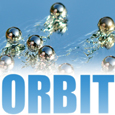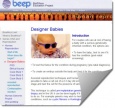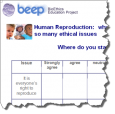Resources: KS5
From OER in Education
Pick your resource by topic:
- [[Topics/Algebra|Algebra]]
- [[Topics/Astronomy|Astronomy]]
- [[Topics/Biodiversity|Biodiversity]]
- [[Topics/Blogs|Blogs]]
- [[Topics/Blogs|Blogs]]
- [[Topics/E-skills|E-skills]]
- [[Topics/Copyright|Copyright]]
- [[Topics/Ethics|Ethics]]
- [[Topics/Cloning|Cloning]]
- [[Topics/Genetics|Genetics]]
- [[Topics/E-skills|E-skills]]
- [[Topics/E-safety|E-safety]]
- [[Topics/Sharing practice|Sharing practice]]
- [[Topics/Curriculum development|Curriculum development]]
- [[Topics/Virtual Learning Environment|Virtual Learning Environment]]
- [[Topics/E-skills|E-skills]]
- [[Topics/Wikis|Wikis]]
- [[Topics/Multimedia|Multimedia]]
- [[Topics/ICT|ICT]]
- [[Topics/Human reproduction|Human reproduction]]
- [[Topics/Fertility treatments|Fertility treatments]]
- [[Topics/Games|Games]]
- [[Topics/Genetics|Genetics]]
- [[Topics/ICT|ICT]]
- [[Topics/Multimedia|Multimedia]]
- [[Topics/Study skills|Study skills]]
- [[Topics/Sampling|Sampling]]
- [[Topics/Wikis|Wikis]]
- [[Topics/Wikis|Wikis]]
Relevant resources
| Astronomy | Astronomy Master Class | |

|
An overview of of six astronomy-related lessons resources (SC019 to SC0024) The Astronomy Master Class was developed to inspire the next generation of scientists and in particular physicists. Although this course of 6 lessons is framed mostly around the science of astronomy, it draws on many themes from physics and aims to show how they all can link together. Additionally, it is structured so that it deliberately does not cut across material in most standard GCSE science courses and does not aim to answer every question. A deliberate part of the design was to visit each topic area only briefly and leave students hungry for more.
| |
| Biodiversity | Using Science to Support Biodiversity | |

|
A virtual field trip to study biodiversity. This is an investigation(ta) in a virtual field trip to Dartmoor National Park. It involves research, designing a scientific investigation and analysing the results.
| |
| Blogs | Getting a buzz out of blogging | |

|
||
| Ethics | Designer Babies | |

|
When does life actually begin? By using an informative web tutorial, this resource aims to stimulate discussion(ta) on the ethics(topic) of modern biology. A worksheet asks students where they stand and reassures them that their response might be kept private. You might also consider using a blog, chat room or other ICT tool to record the questioning(ta) and reasoning(ta) around this topic. A teaching section offers guidance on 'teaching argument' using 'Toulmin’s model of argument' and 'The IDEAS project'.
| |
| Ethics | Cloning | |

|
Cloning - Potential and Issues The topic of the ethics(topic) of modern biology needs to draw on a wider range of sources than a printed book may provide. This resource uses a web tutorial interspersed with external links to news and comment. Rather than leave the students to explore too many interests, a worksheet with questions enables the teacher to focus the students on a subset of the material. You can adapt this to your particular need, for example, if you wanted students to have a discussion(ta)in small groups. You might also consider using a blog, chat room or other ICT tools to record the questioning(ta) and reasoning(ta) around this topic. The lesson-planning proforma (or draft lesson plan) includes a list of objectives that shows the scope of the material.
| |
| Ethics | Ethical issues in human reproduction | |

|
Why does reproduction raises so many ethical issues? When does life begin? This lesson outline stimulates A-level students to engage in discussion(ta), develop their reasoning(ta) skills and increase their awareness of the bioethical(topic) issues involved in human reproduction.
Background texts and open-ended questioning(ta) about human reproduction, contraception and IVF are provided as the stimulus. Small group discussion about these topics, writing on post-it notes, and reading case studies aim to get students reasoning(ta) to justify their opinions, and to compare and evaluate competing views. Finally, whole class(ta) discussion synthesises the emerging ideas and encourages students to consider changing their positions or adding additional issues to a recording table. | |
| Games | Introduction to games | |

|
||
| Genetics | How DNA is sequenced: the stages | |

|
The complexity and scale of genome sequencing Students match diagrams of the stages of DNA sequencing with a list of text descriptions of the process. The lesson can involve students discussing in pairs / group work(ta), followed by a teacher or student-led plenary. Students would share ideas, come to a consensus and check the ‘whole class(ta) response’ with their version. The teacher's questioning(ta) can focus on scientific method(ta) and use of scientific language(ta). The lesson idea provides opportunities for the effective use of assessment(ta).
| |
| Genetics | Human Genome Project: from Sequencing to Sharing Genomic Information | |

|
Discuss and share economic, political and ethical issues. This resource provides guidance on how to use whole class(ta) discussion(ta) and/or small group work(ta) to engage students with the science and the economic, political, ethical(topic), legal and social issues of a scientific project such as the HGP. Its focus is on the scientific method(ta); language(ta) and the nature of scientific inquiry(ta).
| |
| Multimedia | Working with multimedia | |

|
||
| Sampling | Sampling techniques to assess population size | |

|
| |

